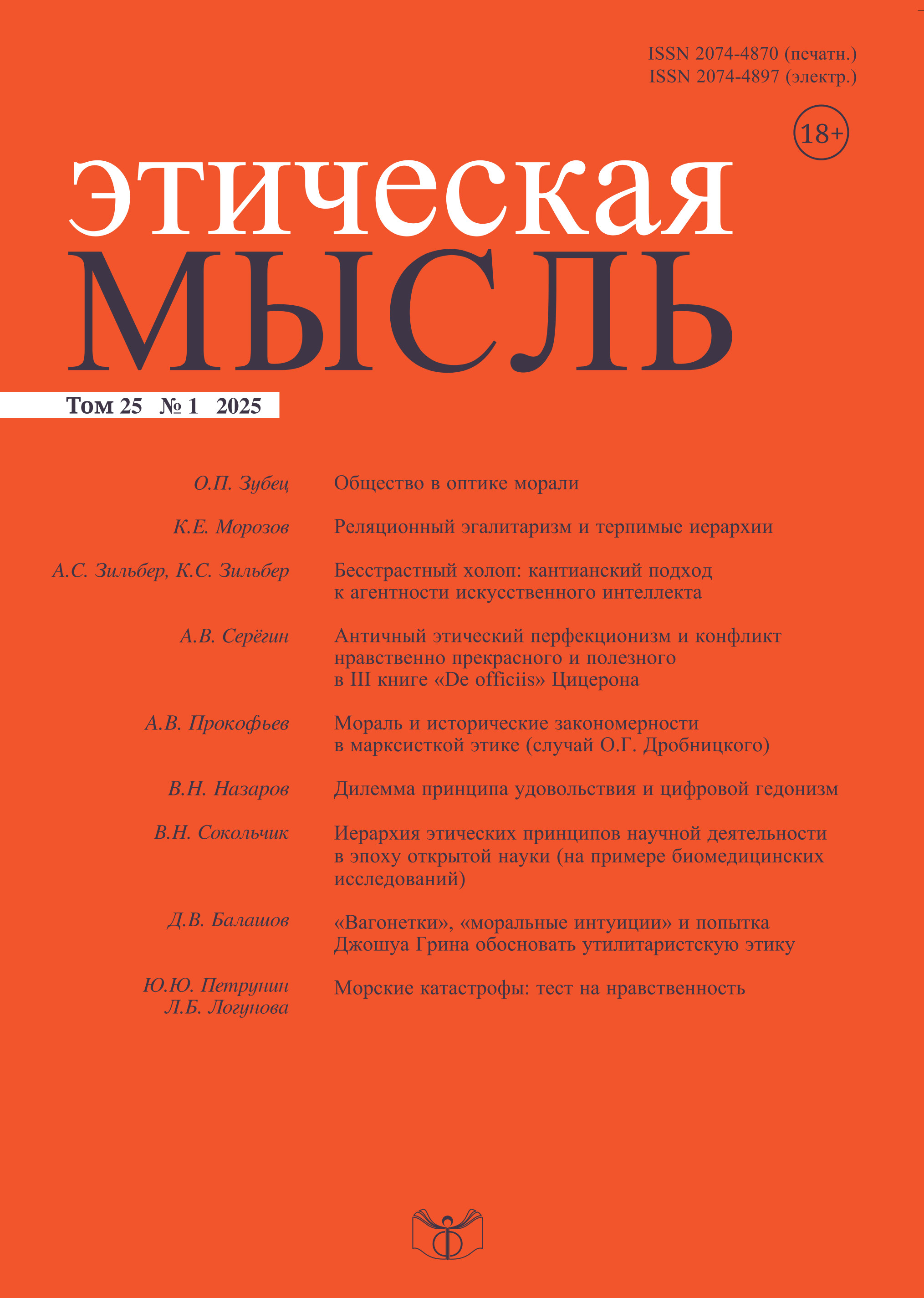The Dilemma of the Pleasure Principle and Digital Hedonism
DOI:
https://doi.org/10.21146/2074-4870-2025-25-1-99-110Keywords:
pleasure principle, reality principle, Symbolic – Imaginary – Real, pleasure dilemma, digital hedonism, gaming hedonism, moral lawAbstract
The article is devoted to the analysis of the ethical and psychological prerequisites and foundations of the digital symbolization of the pleasure principle, which determine the phenomenon of digital hedonism. Digital hedonism is understood as the concept of pleasure and the virtual practices arising from it, based on the replacement of the “objective” pleasure associated with the physical corporeality of the Other, with symbolic pleasure, which is satisfied by an imaginary (“virtually corporeal” or “incorporeal”) object of desire. An essential ethical and philosophical prerequisite for this modification of the pleasure principle is the psychoanalytic concept of “detached reality”, associated with the interaction of the pleasure principle and the reality principle. We are talking about what J. Lacan called “the riddle of the reality principle”, the essence of which is in the “isolation of the subject from reality in the act of pleasure”, similar to the situation of “remote” reality in digital communication. As a result, there is a symbolic replacement of the individual with the image of a “digital double” (or “avatar”) experiencing “digital” pleasure in accordance with the psychoanalytic triad of objectivity substitution: Real – Imaginary – Symbolic. The main moral and psychological premise of the digitalization of pleasure is the dilemma of the pleasure principle. The virtual modification of this dilemma follows from the opposition and mixing of corporeal and incorporeal sources of the emergence and sensation of pleasure in the digital world. In its classical form, this dilemma was formulated by J. Moore. The article emphasizes that the digital symbolization of the pleasure principle is based on the “consciousness of the desired”, imaginary and anticipated pleasure, which is “more valuable than pleasure itself”. This kind of pleasure is not necessarily embodied in an objective desire as a motive for action. This is largely due to the absence in virtual reality of the main factor and stimulus of “objective” pleasure – the physical corporeality of the Other, replaced by symbolic images of virtual (digital) corporeality. To confirm this thesis, the article examines the most characteristic type of virtual hedonistic practice – gaming hedonism. In conclusion, the role of the moral law in the structure of digital hedonism is shown and a kind of categorical imperative of virtual pleasure is formulated: “Strive to achieve and experience only that pleasure which the Other (any other rational being) could share with you in thought and feeling by virtue of its universal aesthetic value.”









